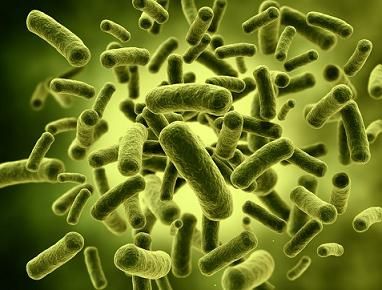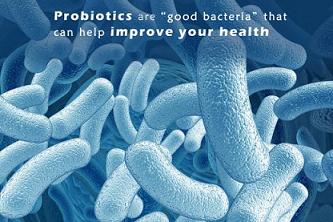 Irritable Bowel Syndrome (IBS)
Irritable Bowel Syndrome (IBS)
When disease-causing bacteria get a home in your gut, they can induce inflammation; damage the intestinal wall and set the stage for IBS. Research has revealed that probiotics can play a major role in resolving IBS and inflammatory bowel disease.
Acidophilus can also help to generate the milk sugar enzyme lactase. It is popular that 75% of adults (except those of northwest European descent) have a deficiency of this enzyme, which suggests their digestive systems cannot break down milk sugar products effectively. This can lead to lactose intolerance, shown by symptoms that include diarrhea, gas, bloating, and bad breath. Some types of intestinal bacteria, for example Lactobacillus, play a fundamental role in the immune system, defending us against infections and cancer. Researchers at the University of Cologne Germany, found out that eliminating the intestinal bacteria of laboratory animals brought their immune system activity to a screeching halt and with probiotics, immune function was restored. The scientists also discovered that these bacteria produced protein like compounds called peptides that kept the immune system running at a low idle, prepared to respond to disease causing infections. More research has discovered that probiotics trigger a wide range of immune compound that battle harmful bacteria and viruses.
Antibiotlc-induced Diarrhea
Although oral antibiotics are sometimes necessary, they’re like medical cluster bombs. They wipe out disease-causing bacteria and destroy beneficial bacteria at the same time. Opportunistic bacteria, for example Clostridium difficile, can rapidly multiply, usually causing a secondary infection and diarrhea. It is critical to use probiotics while taking antibiotics and for at least a month after you quit taking antibiotics. For the prevention of Clostridium, the most well-studied probiotics are Saccharomyces boulardii and Lactobacillus rhamnosus. These should really be taken preventatively if one, hospitalized since infection is more common for those in hospitals.
Colon And Breast Cancer
The research has been with laboratory animals, not people, so they really are preliminary-but they’ve been positive, indicating that Lactobacillus probiotics stimulated the activity of immune cells to battle these two types of cancer. The probiotics might also suppress bacteria that create cancer-causing substances in the colon, and they may alter the inflammatory reaction so it doesn’t stimulate breast cancer cells as well. Probiotics also assist break down potentially harmful estrogens as they go through the digestive tract.
 Probiotics are named after the types of good bacteria they’re part of, plus the subspecies (for example, Lactobacillus ruteri) and are commonly abbreviated (L. ruteri).
Probiotics are named after the types of good bacteria they’re part of, plus the subspecies (for example, Lactobacillus ruteri) and are commonly abbreviated (L. ruteri).